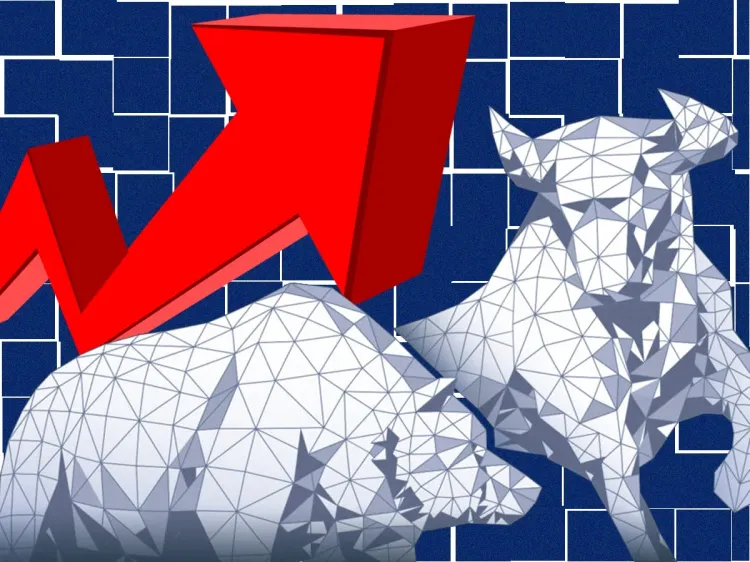Did the Sensex Soar Over 1,900 Points as India-Pakistan Tensions Diminish?

Synopsis
Key Takeaways
- Sensex surged over 1,900 points as tensions eased.
- Major gains in PSU, IT, and auto sectors.
- Foreign institutional investors shifted to net sellers.
- Domestic institutional investors remained net buyers.
- Analysts emphasize India's economic resilience.
Mumbai, May 12 (NationPress) The domestic stock indices experienced a remarkable surge on Monday, with the Sensex soaring more than 1,900 points during the morning session, attributed to the easing of India-Pakistan tensions following ‘Operation Sindoor’, a significant exhibition of India’s military and strategic capabilities.
Early trading saw a notable uptick in PSU bank, IT, and auto sectors.
As of 9:34 am, the Sensex was up by 1,943 points or 2.45 percent, reaching 81,398.42, while the Nifty increased by 598.8 points or 2.49 percent, hitting 24,606.85.
The Nifty Bank index rose by 1,395.95 points or 2.60 percent, reaching 54,991.20. The Nifty Midcap 100 index traded at 54,679.55, climbing 1,456.20 points or 2.74 percent, while the Nifty Smallcap 100 index stood at 16,584.60, gaining 498.95 points or 3.10 percent.
Analysts assert that India’s markets and economy have shown impressive resilience, consistently overcoming external disruptions and geopolitical tensions. This strength is underpinned by a stable, domestically-focused economy that provides a buffer against global challenges, demonstrating that every crisis eventually concludes.
“India's initiatives in securing trade agreements will bolster global business connections, enabling it to expand its exports and attract consistent foreign investment, thus enhancing its competitive edge. Coupled with balanced international relations and strong partnerships, this fosters a relatively stable investment environment,” commented Devarsh Vakil, Head of Prime Research at HDFC Securities.
Last week, major indexes closed with mixed results. The announcement of a trade deal between the US and UK, along with reports of US and Chinese officials discussing trade in Switzerland over the weekend, has buoyed investor sentiment, according to experts.
In the Sensex cohort, Adani Ports, Bajaj Finance, Axis Bank, Eternal, Power Grid, NTPC, Bajaj Finserv, Tata Steel, L&T, and SBI emerged as the top gainers, while Sun Pharma was the sole top loser.
In other Asian markets, China, Hong Kong, and Seoul showed positive trading, whereas Japan was in the negative.
In the previous trading session on Friday, the US's Dow Jones dipped by 0.29 percent to settle at 41,249.38. The S&P 500 fell 0.07 percent to 5,659.91, and the Nasdaq closed at 17,928.92.
On the institutional front, foreign institutional investors (FIIs) shifted from being net buyers for 16 consecutive sessions to net sellers on May 9, offloading equities valued at Rs 3,798.71 crore. In contrast, domestic institutional investors (DIIs) continued to be net buyers, injecting Rs 7,277.74 crore on the same day.










